 John Van Wisse, a 36-year-old from Beaumaris, Australia, will be soon headed to New York City to do the Manhattan Island Marathon Swim. John, one of the fastest Australians to swim the English Channel in 8 hours and 17 minutes, won the 28.5-mile Manhattan Island Marathon Swim in 2000 and 2008 and is looking forward to achieving a three-peat.
John Van Wisse, a 36-year-old from Beaumaris, Australia, will be soon headed to New York City to do the Manhattan Island Marathon Swim. John, one of the fastest Australians to swim the English Channel in 8 hours and 17 minutes, won the 28.5-mile Manhattan Island Marathon Swim in 2000 and 2008 and is looking forward to achieving a three-peat. We caught up with John to ask him about this year's Manhattan Island Marathon Swim to be held on June 6th.
 10Kswimmer: We heard that you had a double hernia while winning last year's race. Did you feel the pain while you were swimming? How did you have to adjust your swimming - or training - because of this injury?
10Kswimmer: We heard that you had a double hernia while winning last year's race. Did you feel the pain while you were swimming? How did you have to adjust your swimming - or training - because of this injury?John: It didn't really affect me swimming wise, mate. I was getting constant irratating pain a few months before Manhattan, so I went to the doc worrying I had something more serious. He found nothing initially so...I thought it must have been in my head.
When the pain never went away down, a friend suggested [I might have] a bladder infection, so I started drinking litres of prune juice - which tastes TERRIBLE - with no results other than glowing skin. I went back to the doc and he sent me off for an ultra sound and they found two hernias. I couldn't have the surgery before the race as it was only a month away. The doc assured me that it was unlikely to split more just swimming so I just put up with it. It turned out I had a torn ab also - which they just found and stitched up during the surgery.
10Kswimmer: Can you take us through a typical week of hard training? For example, how many meters do you train each day? Where do you train and do you have training partners?
John: I'm self-employed working as a swim coach. I run my own adult swim squads and one-on-ones with triatletes, open water swimmers and people interested in general fitness, so I can't train with other swim squads in the morning and nights because I'm working at those times. For Manhattan prep, I cut my afternoon clients out. I'd work from 5:00 am to 10:00 am, eat, then head to the pool at about 11:00 am. In peak training, I'm doing 70 to 80 kilometers per week. Generally one 15-kilometer session Monday to Friday in a 50-meter pool just on my own. I then go home and sleep and eat for a few hours. Then take squad again at night. Weekends, I'm pretty stuffed and I still have squads and clients going so I don't really do much physically. If I do, it's no more than 2 to 3 kilometers at the beach usually.
10Kswimmer: What is the difference between a solo swim and a race like the Manhattan Island Marathon Swim? Do you feed differently? Do you pace yourself differently, especially in the first half of the race or swim? Is one type of swim more stressful than the other?
John: I feel Manhattan is a real tactical race as there are so many currents. You can get a big lead, but someone can pass you like you standing still on a different line so I usually just conserve a little and feel my way through trying to cover moves until I turn for home up the Hudson, then I just fang it. I'm really lucky that my kayaker - Richard Clifford - knows the waters so well. I feed every twenty minutes on fluids or gels in Manhattan and solo swims. I'm a 100 kilogram (220 lb.) guy so I need the constant fuel.
10Kswimmer: For the Manhattan Island Marathon Swim, what is the longest or toughest workout that you do in preparation?
John: I tend to repeat similar sets. It takes me a few months of building, but by three months before Manhattan, I usually do 15 one-kilometer repeats at least three times per week with no warm-up or cool-down. I got one set of 17 one-kilometer reps a few months back, but it stuffed me for the next day just doing those extra two one kilometers.
Seven 2-kilometer reps I do a bit and thirty 400's also. I'm not a superfast swimmer, the best I could manage for the 15 one-kilometers was leaving off the 12 minute and 30-second cycle - with very little rest - but that stuffed me up also for a few days. I generally comfortably leave off 13:30 holding 13 minutes day-in day-out. People at the pool think I'm mad.
I also did two 15-kilometer swims in the last two weeks in the bay here in 11°C (51.8°F) in my Speedos which was tough. We have a sea baths here where you can do fifty 300-meter squares. It's great also because they have a stream room and hot showers. We have a winter one-mile race here in July where the water is 6°C or 7°C (42.8°F - 44.6°F) depending on the winter - no wetsuit which is always tough. I've been doing it for 16 years. I love it. The group's called the Icebergers. People of all ages do it. One guy Harry Raisbeck swam 600 meters daily through winter up to his early 90's. Harry had his 99th birthday recently, but isn't strong enough physically anymore to get in. He is a legend to us.
10Kswimmer: What is the allure of swimming around Manhattan?
John: The Manhattan race is just so awesome. It's really well run by friendly people and it just spins me out swimming around an island that has so much history. My kayaker Richard Clifford who is a great family friend lives in New Rochelle about 40 minutes out of Manhattan. So I stay with him and his kids Devon and Cealan, just great people. Years ago, my sister Tammy swam the Lochness in Scotland and Richard flew over at his own expense to paddle for her. He also paddled for her when she won Manhattan in 1997. A great man.
10Kswimmer: What is the funniest or strangest thing that has ever happened to you during the race or in the streets of New York?
John: I don't really have a good answer for this one. I have heard a story from the 1990's when a great Australian swimmer Susie Maroney swam Manhattan. Her brother Mick was on her boat as her coach. Mick reckons they swam past a dead giraffe carcass. My sister Tammy used to tell me not to swim too close to the sewage plant as she nearly got sucked in one year. I think she was pulling my leg though.
10Kswimmer: When you first dive into the waters around Manhattan to begin the race, what is going through your mind?
John: I'm normally really nervous at the start of Manhattan. I wonder why I'm doing it and become religous.
10Kswimmer: When you cross the finish line at the Manhattan Island Marathon Swim, what is going through your mind?
John: By the finish, I'm in a zombie state. I'm still fired up, obviously, tired but really satisfied and relieved. A bit of everything I guess - I'm an emotional man.
10Kswimmer: Have you ever thought of quitting a marathon swim? If so, how did you get over these thoughts and continue swimming?
John: I'm not the most talented swimmer, but I'm very stubborn and like to finish what I start. When I was young, I pulled out of a few cold water swims with hypothermia as I was built like a pretzel. In 1993, I got pulled out of the English Channel and had to get resuscitated. We had 13°C (55.4°F) water with Force six winds (22-27 knots), 17°C (62.6°F) air temperature and no sun that day. I went back the next year and made it. I put on 23 kilograms (50.6 lbs.) of fat for insulation and swam through the winter back home until I could barely walk to the showers. England was a different place in 1994 though. The summer was sooo much better with the water at 17°C (62.6°F), air temperature 26°C (78.8°F) and sunny. Next year I'm booked for a double crossing.
 John is obviously a very passionate and committed open water swimmer with a training base, strategy and support team capable of helping him achieve a three-peat in Manhattan.
John is obviously a very passionate and committed open water swimmer with a training base, strategy and support team capable of helping him achieve a three-peat in Manhattan.Upper photo by Reuters. Lower photo by the Epoch Times.
Copyright © 2009 by World Open Water Swimming Association


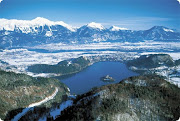
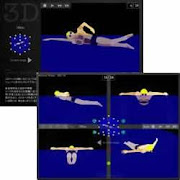
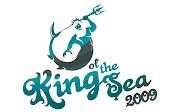



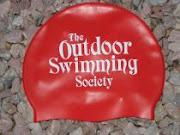

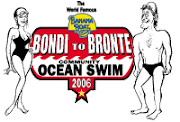


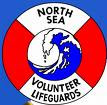
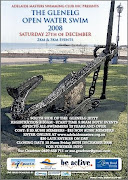





No comments:
Post a Comment